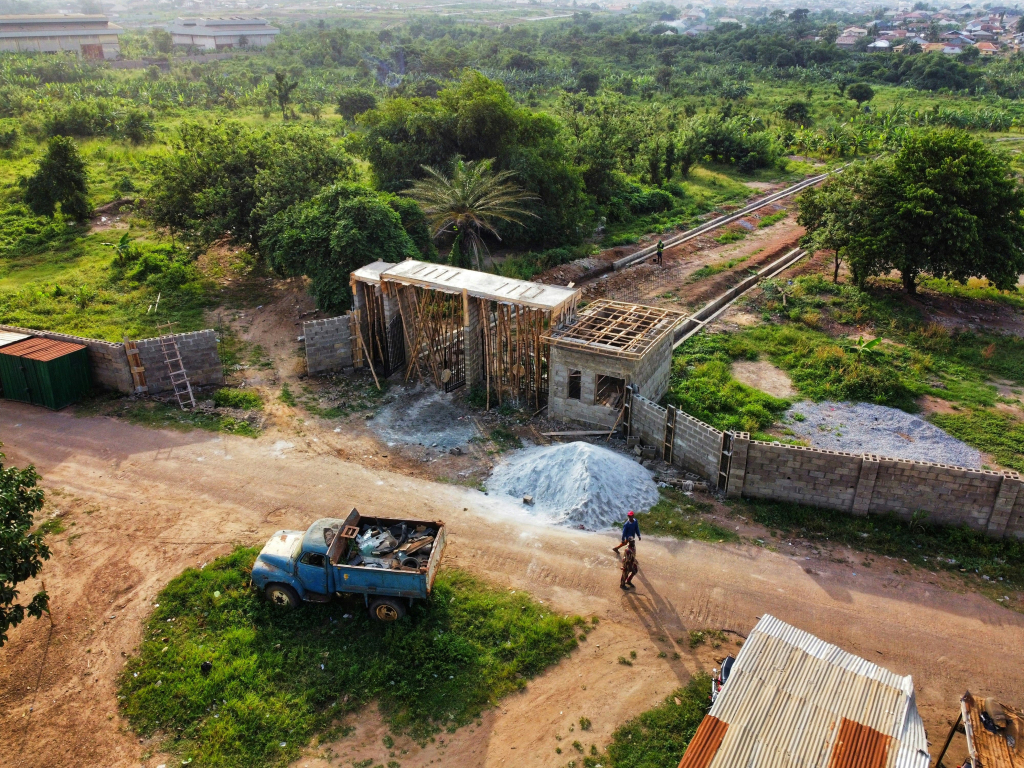Let’s be honest, the Nigerian real estate market is giving main character energy right now. Everywhere you turn, someone is launching a new estate, advertising “affordable luxury,” or dropping those glossy 3D renders that make you want to call your agent immediately.
But before you go and sign that off-plan deal (you know, those houses that are still being built or sometimes… just vibes and a site plan), pause small.
Yes, off-plan properties can be a smart move, with lower prices, flexible payment plans, and solid appreciation potential. But for every success story, there’s someone still waiting for their developer to “finish the roofing stage” since 2020.
So before you send that deposit alert, here are five key questions you must ask to protect your money and your peace of mind.
1. Who’s the Developer and What’s Their Story?
First things first, who’s building your dream? Because in Nigeria, the developer makes or breaks your investment.
Do your homework!
- Check if they’ve actually completed past projects (not just posted them on Instagram).
- Visit their old estates and talk to residents if you can.
- Ask for references or project portfolios.
Legit developers are usually registered with REDAN (Real Estate Developers Association of Nigeria) and are not allergic to transparency. They’ll show you documents, site progress, and answer questions confidently.
But if the developer starts giving “we’ll get back to you” energy every time you ask for proof abeg, run.
2. What Legal Documents Back This Project?
In this market, your biggest flex isn’t granite flooring; it’s legal documents.
Before paying one naira, ask for:
- C of O (Certificate of Occupancy) or Governor’s Consent
- Deed of Assignment or Deed of Conveyance
- Approved building plan
- Development permit
No matter how fine the brochure looks, paperwork is king.
Hire a property lawyer to verify everything. Because if the land is under government acquisition, your “future estate” might just become “future regrets.”
In short, if it’s not on paper, it doesn’t exist. Period.
3. What’s the Payment Plan (and Refund Policy If Wahala Happens)?
One of the reasons people love off-plan is the flexible payment structure; pay small-small while construction goes on.
But please, read the fine print like your financial destiny depends on it (because it does).
Ask things like:
- What’s the total cost and breakdown?
- Any hidden charges?
- What happens if I miss a payment?
- And most importantly, what happens if they don’t deliver on time?
A responsible developer should have a clear refund or compensation policy. Make sure it’s in writing. No “we’ll sort it out later” handshake deals, please.
4. When’s Completion and How Do I Track Progress?
If the developer says “delivery in 12 months,” ask if they mean calendar months or Nigerian months.
Always request a construction timeline with clear milestones: foundation, roofing, finishing, etc. And don’t just take their word for it; visit the site, take photos, and ask for progress reports.
The best developers update investors regularly with photos, newsletters, or dashboard access. The unserious ones? You’ll only see “coming soon” banners and drone videos for five years straight.
If the project looks stagnant, that’s your cue to start asking questions, loudly.
5. What’s the Long-Term Investment Plan?
You’re not just buying a house; you’re building wealth. So think long-term.
Ask:
- How much will this property appreciate after completion?
- Is the area in a high-demand zone (close to major roads, estates, or business hubs)?
- Are there future developments like airports, markets, or schools nearby?
If your goal is to rent or shortlet, confirm if the developer offers property management support. Because a good exit strategy (sell, lease, or shortlet) is how you turn that off-plan deal into real returns.
Final Thoughts
Off-plan investments in Nigeria can be golden, but only if you play it smart.
Before you sign or transfer money, make sure you:
• Research the developer
• Verify every document
• Understand payment terms
• Confirm timelines
• Plan your exit strategy
Real estate isn’t magic; it’s due diligence. The more questions you ask, the safer your investment (and your sleep at night).
So, go forth and invest like a boss, informed, confident, and with your lawyer on speed dial.
Photo by Batto Creative
